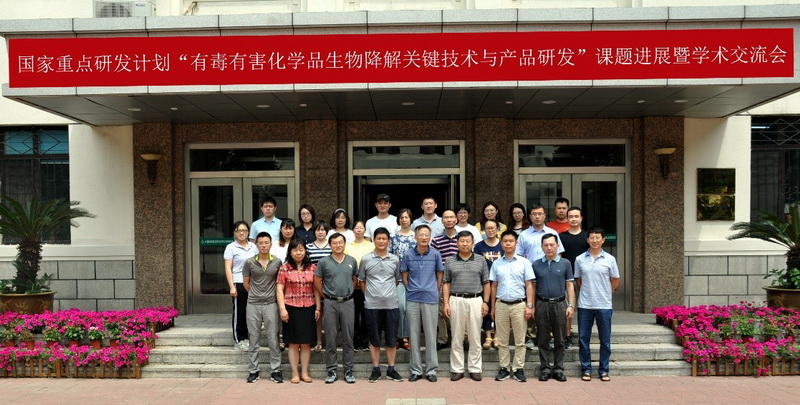National Key Research and Development Program on Biodegradation of Toxic and Hazardous Chemicals Held a Seminar in Shenyang
On July 3, 2018, the progress reporting seminar of the 2nd project (“Key Technology and Product Development for Biodegradation of Toxic and Hazardous Chemicals” 2017YFD0800702) of the National Key Research and Development Program “Technology and Product Development for Prevention and Control of Toxic and Hazardous Chemical / Biological Pollutions in Agricultural Systems” was held at the Institute of Applied Ecology (IAE) of the Chinese Academy of Sciences.
The expert group consisted of Prof. LIU Baocun (Beijing Academy of Agriculture and Forestry), Prof. CAI Xiyun (Dalian University of Technology), Prof. ZHANG Chenggang and Prof. WU Zhijie from the IAE. The program leader LIU Xingang was invited to attend the seminar.
More than 30 people attended the seminar, including sub-project leaders, members and graduate students from different institutes or universities (IAE, Nanjing Agricultural University (NAU), Institute of Agricultural Resources and Regional Planning (IARRP) of the Chinese Academy of Agricultural Sciences (CAAS), Hunan Institute of Plant Protection (HIPP), Shenyang Research Institute of Chemical Industry (SRICI), Environmental Protection Research Institute of the Ministry of Agriculture, Institute of Plant Protection of CAAS).
The seminar was chaired by Prof. ZHANG Huiwen. ZHUO Junchen, the division chief of Science & Technology Division of IAE, delivered a welcome speech on behalf of the host institute of this project.
Prof. ZHANG Huiwen then introduced the project’s basic information such as its research contents and evaluation indicators to the attendees. The sub-project leaders, Prof. HONG Qing (NAU), associate Prof. LI Xinyu (IAE), associate Prof. LIU Xiaoyang (IARRP), LUO Xiangwen (associate researcher of HIPP), and LI Tingting (senior engineer of SRICI) respectively reported their research progress and next step plans.
The expert group commented on each report and fully affirmed the project’ progress and results. They believed that the project was carried out generally according to the plan; and the researchers screened out a few highly efficient strains for pesticide/antibiotic degradation, partially clarified the degradation mechanisms and explored the methods to mass-produce these strains.
The expert group put forward some constructive opinions and suggestions on the next step plans of each sub-project. They suggested the researchers perform studies according to the evaluation indicators, pay more attention to the construction of demonstration sites, focus on the field application effectiveness of these strains, and strengthen technical exchange with others. Prof. LIU Xingang made a few suggestions of his own and summed up the seminar in his closing remark.




